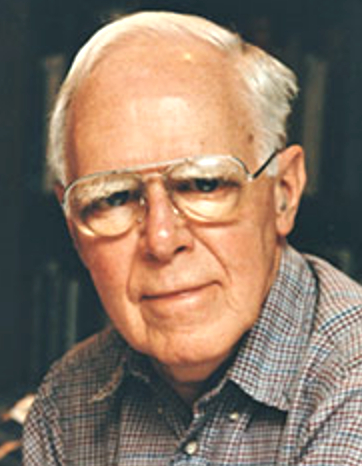On this date in 1914, Martin Gardner was born in Tulsa, Okla. He graduated Phi Beta Kappa from the University of Chicago in 1936. After Navy service during WWII, he worked as a reporter for the Tulsa Tribune. His “Mathematical Games” column for Scientific American, originally called “Soma Cube,” ran from 1956-86 and popularized recreational mathematics in the U.S.
Among the more than 100 books and booklets Gardner published are Fads and Fallacies in the Name of Science, On the Wild Side, his collected Skeptical Inquirer columns, The New Age, Notes of a Fringe Watcher (1991) and The Healing Revelation of Mary Baker Eddy (1993), which exposed her plagiarism. Gardner called his 1999 work The Whys of a Philosophical Scrivener the book he liked best, calling it “a detailed account of everything I believe.”
He called himself a “philosophical theist,” rejecting all supernaturalism and established religion but embracing the idea of a personal god and an afterlife. (Spectrum magazine, Oct. 17, 2008.) He also called himself a “fideist,” which describes the position that faith supersedes reason, i.e., when someone chooses to believe in a god or gods because it’s comforting, not because there’s evidence. It’s a proposition that is many centuries old among philosophers.
In a December 1995 Scientific American article, Gardner said, “I grew up believing that the Bible was a revelation straight from God. … It lasted about halfway through my years at the University of Chicago.” He retired in 1979 and moved with his wife Charlotte to Hendersonville, N.C., but continued to write math articles and revise some of his older books. After Charlotte died in 2000 he moved to Norman, Okla., where his son James was an education professor. He died there at age 95. (D. 2010)


